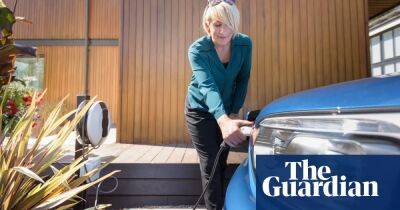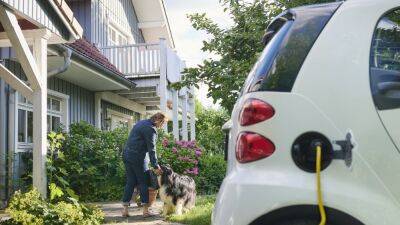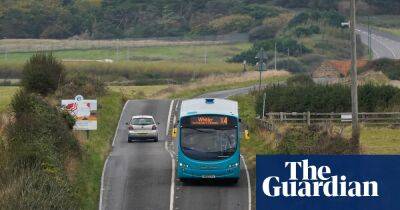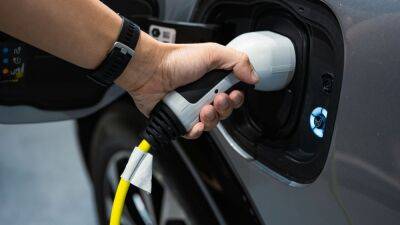UK has no public electric charger or hydrogen refilling station solely for HGVs
The UK does not have a single public electric charger or hydrogen refilling station dedicated to lorries, with fewer than 12 years until the first ban on diesel engines comes into force, according to the automotive industry’s lobby group.
The Society of Motor Manufacturers and Traders (SMMT) said the government must urgently set out a strategy to help the sector to decarbonise or risk missing the target to stop the sale of fossil fuel trucks by 2040.
The lobby group said the lack of infrastructure “makes it impossible for the vast majority of operators to contemplate investments to decarbonise their fleets”. It also called for larger subsidies for zero-emission trucks to match the likes of France and Finland, which offer grants up to three times the size of the UK’s.
Heavy goods vehicles were responsible for 20% of the UK’s transport carbon emissions in 2021, or 21.4m tonnes, making them the second-biggest transport emitter, according to government data. However, unlike for cars and vans, there is no clear consensus on which zero-emission technology will become dominant.
Manufacturers have started building and selling electric lorries, while others are experimenting with hydrogen fuel cells. However, the lorry sector is far behind the car industry in commercialising the technology: only one in 600 trucks on UK roads produce zero emissions.
Electric lorries will require chargers capable of delivering more power than their car equivalents to prevent long wait times at filling stations, while there is no existing supply of the green hydrogen – produced from renewable power – that some companies are betting will be better suited to making longer trips.
The first ban on internal combustion engines in new lorries is scheduled to
Read more on theguardian.com
















